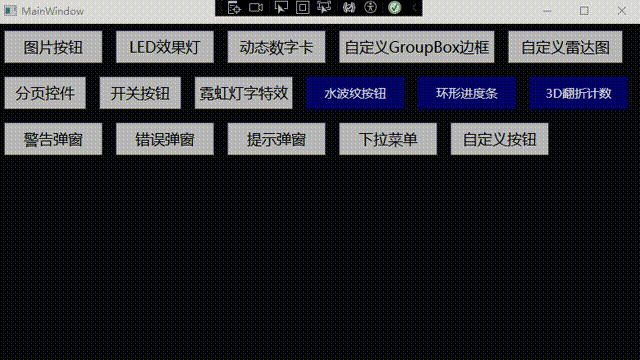背景简介
日志脱敏 是常见的安全需求,最近公司也需要将这一块内容进行推进。看了一圈网上的案例,很少有既轻量又好用的轮子可以让我直接使用。我一直是反对过度设计的,而同样我认为轮子就应该是可以让人拿去直接用的。所以我准备分享两篇博客分别实现两种日志脱敏方案。
方案分析
-
logback MessageConverter + 正则匹配
上一篇介绍此方法- 优势
- 侵入性低、工作量极少, 只需要修改xml配置文件,适合老项目
- 劣势
- 效率低,会对每一行日志都进行正则匹配检查,效率受日志长度影响,日志越长效率越低,影响日志吞吐量
- 因基于正则匹配 存在错杀风险,部分内容难以准确识别
- 优势
-
fastjson Filter + 注解 + 工具类
本篇博客介绍- 优势
- 性能损耗低、效率高、扩展性强,精准脱敏,适合QPS较高日志吞吐量较大的项目。
- 劣势
- 侵入性较高,需对所有可能的情况进行脱敏判断
- 存在漏杀风险,全靠开发控制
- 优势
本篇博客部分代码未贴出,可以在上一篇博客中找到 传送门:Java日志脱敏——基于logback MessageConverter实现
fastjson Filter + 注解 + 工具类
流程图解
依托于 alibaba fastjson 提供的扩展能力,自定义ContextValueFilter,在将对象JSON序列化时,返回脱敏后的value,实现打印日志脱敏

代码案例
定义注解
定义 元注解 用于标记脱敏策略注解
package com.zhibo.log.sensitive.annotation.metadata;
import java.lang.annotation.*;
/**
* @Author: Zhibo
* @Description: 用于自定义 sensitive 脱敏策略注解,
*/
@Inherited
@Documented
@Target(ElementType.ANNOTATION_TYPE)
@Retention(RetentionPolicy.RUNTIME)
public @interface SensitiveStrategy {
}
定义 手机号 脱敏策略注解
package com.zhibo.log.sensitive.annotation.strategy;
import com.zhibo.log.sensitive.annotation.metadata.SensitiveStrategy;
import java.lang.annotation.*;
/**
* @Author: Zhibo
* @Description: 手机号脱敏注解
*/
@Inherited
@Documented
@Target(ElementType.FIELD)
@Retention(RetentionPolicy.RUNTIME)
@SensitiveStrategy
public @interface SensitiveStrategyPhone {
}
定义 身份证号码 脱敏策略注解
package com.zhibo.log.sensitive.annotation.strategy;
import com.zhibo.log.sensitive.annotation.metadata.SensitiveStrategy;
import java.lang.annotation.*;
/**
* @Author: zhibo
* @Description: 中国身份证号脱敏注解
*/
@Inherited
@Documented
@Target(ElementType.FIELD)
@Retention(RetentionPolicy.RUNTIME)
@SensitiveStrategy
public @interface SensitiveStrategyIdNo {
}
定义 Map 类型扩展注解,考虑到部分自定义Bean 中会有一些Map的成员变量,而Map中可能也有敏感信息需要处理。
package com.zhibo.log.sensitive.annotation;
import java.lang.annotation.*;
/**
* @Author: Zhibo
* @Description: 针对Object对象中如果存在 Map参数,而Map存在敏感字段时使用<br></>
* 如果对象中属性为一个Map,则可以使用这个注解指定,Map中特定Key的加密规则。
*/
@Inherited
@Documented
@Target(ElementType.FIELD)
@Retention(RetentionPolicy.RUNTIME)
public @interface SensitiveMap {
/**
* 用于构建一个Map 传递格式 "key1","value1","key2","value2"....
* key 为Map中需要脱敏的key,value为脱敏规则
*
* 案例Demo:
* @SensitiveMap({"phone", LogSensitiveConstants.STRATEGY_PHONE})
* private Map<String,Object> map = new HashMap<>();
* {
* map.put("key", "value");
* map.put("name","王大锤");
* map.put("phone","18123456789");
* }
*/
String[] value();
}
将注解与对应的脱敏策略方法绑定
package com.zhibo.log.sensitive.core.util.strategy;
import com.zhibo.log.sensitive.annotation.metadata.SensitiveStrategy;
import com.zhibo.log.sensitive.annotation.strategy.*;
import com.zhibo.log.sensitive.api.IStrategy;
import com.zhibo.log.format.LogSensitiveConstants;
import com.zhibo.log.sensitive.core.strategory.*;
import java.lang.annotation.Annotation;
import java.util.HashMap;
import java.util.Map;
/**
* @Author: zhibo
* @Description: 系统中内置的策略映射、注解和实现之间映射
*/
public final class SensitiveStrategyBuiltInUtil {
private SensitiveStrategyBuiltInUtil(){}
/** 注解和实现策略的映射关系 */
private static final Map<Class<? extends Annotation>, IStrategy> CLASS_MAP = new HashMap<>();
private static final Map<String, IStrategy> STRATEGY_MAP = new HashMap<>();
static {
StrategyAddress strategyAddress =new StrategyAddress();
StrategyIdNo strategyIdNo = new StrategyIdNo();
StrategyPhone strategyPhone = new StrategyPhone();
CLASS_MAP.put(SensitiveStrategyAddress.class, strategyAddress);
CLASS_MAP.put(SensitiveStrategyIdNo.class, strategyIdNo);
CLASS_MAP.put(SensitiveStrategyPhone.class, strategyPhone);
STRATEGY_MAP.put(LogSensitiveConstants.STRATEGY_ADDRESS, strategyAddress);
STRATEGY_MAP.put(LogSensitiveConstants.STRATEGY_ID_NO, strategyIdNo);
STRATEGY_MAP.put(LogSensitiveConstants.STRATEGY_PHONE, strategyPhone);
}
public static IStrategy getStrategy(String key){
return STRATEGY_MAP.get(key);
}
/**
* 获取对应的系统内置实现
* @param annotationClass 注解实现类
* @return 对应的实现方式
*/
public static IStrategy require(final Class<? extends Annotation> annotationClass) {
return CLASS_MAP.get(annotationClass);
}
/**
* 获取策略
* @param annotations 字段对应注解
* @return 策略
*/
public static IStrategy getStrategy(final Annotation[] annotations) {
for (Annotation annotation : annotations) {
SensitiveStrategy sensitiveStrategy = annotation.annotationType().getAnnotation(SensitiveStrategy.class);
if (null != sensitiveStrategy) {
return SensitiveStrategyBuiltInUtil.require(annotation.annotationType());
}
}
return null;
}
}
实现JSON序列化过滤器
关键代码了,基本的逻辑都在这里
package com.zhibo.log.sensitive.core.support.filter;
import com.alibaba.fastjson.serializer.BeanContext;
import com.alibaba.fastjson.serializer.ContextValueFilter;
import com.zhibo.log.sensitive.annotation.SensitiveMap;
import com.zhibo.log.sensitive.api.IStrategy;
import com.zhibo.log.sensitive.core.context.SensitiveContext;
import com.zhibo.log.sensitive.core.util.strategy.SensitiveStrategyBuiltInUtil;
import java.lang.annotation.Annotation;
import java.lang.reflect.Array;
import java.lang.reflect.Field;
import java.util.*;
/**
* @Author: Zhibo
* @Description: 默认的上下文过滤器,支持处理 对象、数组、集合、Map 等类型数据,支持自定义脱敏策略
*/
public class SensitiveContextValueFilter implements ContextValueFilter {
/** 脱敏上下文 */
private final SensitiveContext sensitiveContext;
public SensitiveContextValueFilter(SensitiveContext context) {
this.sensitiveContext = context;
}
@Override
public Object process(BeanContext context, Object object, String name, Object value) {
// 对象为 MAP 的时候,FastJson map 对应的 context 为 NULL
if(null == context) {
//对象为MAP则检测是否存在指定脱敏策略
if (null == sensitiveContext.getMapDesStrategy() || value == null){
return value;
}else {
//执行匹配指定脱敏策略
return desMapValue(name,value);
}
}
// 信息初始化
final Field field = context.getField();
if (field == null){
return value;
}
return handleSensitive(value,field);
}
/**
* Map 类型数据脱敏
* @param name key
* @param value 未被脱敏的原对象
* @return 脱敏后的新对象
*/
private Object desMapValue(String name, Object value){
String desStrategy = sensitiveContext.getMapDesStrategy().get(name);
if (desStrategy != null){
IStrategy strategy = SensitiveStrategyBuiltInUtil.getStrategy(desStrategy);
if (strategy != null){
if (value.getClass().isArray()){
return desArray(value,strategy);
} else if (value instanceof Collection) {
return desCollection(value,strategy);
}else {
return strategy.des(value);
}
}
}
return value;
}
/**
* 处理脱敏信息
*
* @param field 当前字段
*/
private Object handleSensitive(final Object originalFieldVal, final Field field) {
// 原始字段值
IStrategy strategy = null;
//处理 @SensitiveMap
SensitiveMap sensitiveMap = field.getAnnotation(SensitiveMap.class);
if (null != sensitiveMap) {
String[] entry =sensitiveMap.value();
if (entry != null && entry.length>0 && (entry.length & 1) == 0){
// 不为null 且长度一致则将用户指定的脱敏规则加入本次脱敏上下文
Map<String,String> map = sensitiveContext.getMapDesStrategy();
if (map == null){
map = new HashMap<>();
sensitiveContext.setMapDesStrategy(map);
}
for (int i = 1; i<entry.length;i+=2){
map.put(entry[i-1],entry[i]);
}
}
return originalFieldVal;
}
// 系统内置自定义注解的处理,获取所有的注解
Annotation[] annotations = field.getAnnotations();
if (null != annotations && annotations.length > 0) {
strategy = SensitiveStrategyBuiltInUtil.getStrategy(annotations);
}
// 判断是否获取到指定脱敏规则,如有则进行脱敏处理
if (null != strategy){
Class fieldTypeClass = field.getType();
if(fieldTypeClass.isArray()) {
// 为数组类型
return desArray(originalFieldVal,strategy);
}else if (Collection.class.isAssignableFrom(fieldTypeClass)){
// 为集合类型
return desCollection(originalFieldVal,strategy);
} else {
// 普通类型
return strategy.des(originalFieldVal);
}
}
return originalFieldVal;
}
/**
* 处理数据类型,根据元素依次遍历脱敏
* @param value 未被脱敏的原对象
* @param strategy 脱敏策略
* @return 脱敏后的新对象
*/
private Object desArray(Object value,IStrategy strategy){
Object[] arrays = (Object[]) value;
if (null != arrays && arrays.length > 0) {
final int arrayLength = arrays.length;
Object newArray = new Object[arrayLength];
for (int i = 0; i < arrayLength; i++) {
Array.set(newArray, i, strategy.des(arrays[i]));
}
return newArray;
}
return value;
}
/**
* 处理集合类型,根据元素依次遍历脱敏
* @param value 未被脱敏的原对象
* @param strategy 脱敏策略
* @return 脱敏后的新对象
*/
private Object desCollection(Object value,IStrategy strategy){
final Collection<Object> entryCollection = (Collection<Object>) value;
if (null != entryCollection && !entryCollection.isEmpty()) {
List<Object> newResultList = new ArrayList<>(entryCollection.size());
for (Object entry : entryCollection) {
newResultList.add(strategy.des(entry));
}
return newResultList;
}
return value;
}
}
上下文对象 SensitiveContext,目前里面只有一个Map,用来存储对map类型元素进行脱敏的策略规则
package com.zhibo.log.sensitive.core.context;
import java.util.Map;
/**
* @Author: Zhibo
* @Description: 脱敏上下文
*/
public class SensitiveContext {
private SensitiveContext(){}
/**
* Map中Key的指定脱敏规则
*/
private Map<String,String> mapDesStrategy;
public Map<String, String> getMapDesStrategy() {
return mapDesStrategy;
}
public void setMapDesStrategy(Map<String, String> mapDesStrategy) {
this.mapDesStrategy = mapDesStrategy;
}
/**
* 新建一个对象实例
* @return this
*/
public static SensitiveContext newInstance() {
return new SensitiveContext();
}
}
脱敏工具类使用入口
支持自定义Bean 脱敏 根据注解规则;
有时候日志打印的直接就是一个Map,没有写注解的地方,这里也支持了;
还有很多场景直接打印 参数 直接就是一个String的文本,所以也支持 直接对文本进行脱敏;
当然还有数组、集合的直接打印需求也都支持了;
package com.zhibo.log.sensitive.core;
import com.alibaba.fastjson.JSON;
import com.alibaba.fastjson.serializer.ContextValueFilter;
import com.zhibo.log.format.LogSensitiveConstants;
import com.zhibo.log.sensitive.api.IStrategy;
import com.zhibo.log.sensitive.core.context.SensitiveContext;
import com.zhibo.log.sensitive.core.support.filter.SensitiveContextValueFilter;
import com.zhibo.log.sensitive.core.util.strategy.SensitiveStrategyBuiltInUtil;
import org.apache.commons.lang3.StringUtils;
import org.slf4j.Logger;
import org.slf4j.LoggerFactory;
import java.util.Collection;
import java.util.HashMap;
import java.util.Map;
import java.util.regex.Pattern;
/**
* @Author: Zhibo
* @Description: 脱敏工具类
*/
public final class LogDesensitizeUtil {
private static final Logger log = LoggerFactory.getLogger(LogDesensitizeUtil.class);
private LogDesensitizeUtil(){}
/**
* 返回脱敏后的对象 json
* null 对象,返回字符串 "null"
* @param object 对象/map 自定义的对象,依据对象内注解进行脱敏
* @param entry 用于构建一个Map 传递格式 "key1","value1","key2","value2".... 如非map对象可以忽略
* @return 结果 json,如处理异常则直接返回原对象
*/
@SuppressWarnings({"unchecked", "rawtypes"})
public static String desJson(Object object, String... entry) {
try {
//String类型则直接调用desString
if (object instanceof String){
return desString(object.toString());
}
Map<String,String> map = null;
if (object!= null && entry != null && entry.length>0 && (entry.length & 1) == 0){
map = new HashMap<>();
for (int i = 1; i<entry.length;i+=2){
map.put(entry[i-1],entry[i]);
}
}
return desJson(object,map);
} catch (Exception e) {
log.warn("对象脱敏失败 desJson异常 异常信息:",e);
return JSON.toJSONString(object);
}
}
/**
* 返回脱敏后的对象 json
* @param object 需要被脱敏的对象 or Map
* @param desStrategy Map中指定Key的脱敏策略,此策略只针对String 类型的值进行脱敏,如Map中存储的是对象,请使用注解进行标记
* @return 结果 json,如处理异常则直接返回原对象
*/
public static String desJson(Object object, Map<String, String> desStrategy) {
try {
if (null == object) {
return JSON.toJSONString(object);
}
final SensitiveContext context = SensitiveContext.newInstance();
context.setMapDesStrategy(desStrategy);
ContextValueFilter filter = new SensitiveContextValueFilter(context);
return JSON.toJSONString(object, filter);
} catch (Exception e) {
log.warn("对象脱敏失败 desJson异常 异常信息:",e);
return JSON.toJSONString(object);
}
}
/**
* 通过正则匹配,返回脱敏后的内容,当前支持11位手机号、18位身份证号码、地址信息匹配
* 如已知需脱敏的数据类型,请使用{@link LogDesensitizeUtil#desString(String, String)}方法,
* @param value 未脱敏的明文
* @return 结果 已脱敏的文本
*/
public static String desString(String value) {
try {
if (StringUtils.isBlank(value)){
return value;
}else if (value.length() == 11){
// 匹配手机号规则
if (Pattern.compile(LogSensitiveConstants.PHONE_REGEX).matcher(value).matches()){
return desString(value, LogSensitiveConstants.STRATEGY_PHONE);
}
}else if (value.length() == 18){
// 匹配身份证号码规则
if (Pattern.compile(LogSensitiveConstants.ID_NO_REGEX).matcher(value).matches()){
return desString(value, LogSensitiveConstants.STRATEGY_ID_NO);
}
}
} catch (Exception e) {
log.warn("数据脱敏失败 desString异常 异常信息:",e);
}
// 未命中任何规则直接返回明文
return value;
}
/**
* 依据指定的脱敏策略返回脱敏后的内容
* @param value 需要被脱敏的文本
* @param type 指定脱敏策略,详见{@link LogSensitiveConstants},
* 如脱敏策略不存在,则不进行脱敏处理
* @return 结果 已脱敏的文本
*/
public static String desString(String value, String type) {
try {
if (StringUtils.isNotBlank(value)){
IStrategy strategy = SensitiveStrategyBuiltInUtil.getStrategy(type);
return null == strategy? value : strategy.des(value);
}
} catch (Exception e) {
log.warn("数据脱敏失败 desString异常 异常信息:",e);
}
return value;
}
/**
* 依据指定的脱敏策略返回脱敏后的内容
* @param values 需要被脱敏的文本
* @param type 指定脱敏策略,详见{@link LogSensitiveConstants},
* 如脱敏策略不存在,则不进行脱敏处理
* @return 结果 已脱敏的文本
*/
public static String desString(String[] values, String type) {
try {
IStrategy strategy = SensitiveStrategyBuiltInUtil.getStrategy(type);
if (null != values && values.length>0 && null != strategy){
StringBuilder sbd = new StringBuilder("[\"");
sbd.append(strategy.des(values[0])).append("\"");
for (int i = 1;i<values.length;i++){
sbd.append(",\"").append(strategy.des(values[i])).append("\"");
}
sbd.append("]");
return sbd.toString();
}
} catch (Exception e) {
log.warn("数据脱敏失败 desString异常 type:{} 异常信息:",type,e);
}
return JSON.toJSONString(values);
}
/**
* 依据指定的脱敏策略返回脱敏后的内容
* @param values 需要被脱敏的文本
* @param type 指定脱敏策略,详见{@link LogSensitiveConstants},
* 如脱敏策略不存在,则不进行脱敏处理
* @return 结果 已脱敏的文本
*/
public static String desString(Collection<String> values, String type) {
try {
IStrategy strategy = SensitiveStrategyBuiltInUtil.getStrategy(type);
if (null != values && values.size()>0 && null != strategy){
StringBuilder sbd = new StringBuilder("[");
for (String entry : values) {
sbd.append("\"").append(strategy.des(entry)).append("\",");
}
sbd.setCharAt(sbd.length()-1,']');
return sbd.toString();
}
} catch (Exception e) {
log.warn("数据脱敏失败 desString异常 异常信息:",e);
}
return JSON.toJSONString(values);
}
}
测试Demo
package com.zhibo.demo;
import com.zhibo.log.sensitive.annotation.SensitiveMap;
import com.zhibo.log.sensitive.annotation.strategy.SensitiveStrategyIdNo;
import com.zhibo.log.sensitive.annotation.strategy.SensitiveStrategyPhone;
import com.zhibo.log.sensitive.core.LogDesensitizeUtil;
import com.zhibo.log.format.LogSensitiveConstants;
import lombok.Data;
import lombok.extern.slf4j.Slf4j;
import java.util.Arrays;
import java.util.HashMap;
import java.util.List;
import java.util.Map;
/**
* @author zhibo
*/
@Slf4j
@Data
public class DesDemoBean{
/** 对身份证进行脱敏*/
@SensitiveStrategyIdNo
private String idNo = "421083202411111111";
/** 对手机号集合进行脱敏 */
@SensitiveStrategyPhone
private List<String> mobileList = Arrays.asList("18611111111","18622222222","18633333333");
private String adderss = "广东省深圳市南山区牛马大厦";
/**
* 对Map进行脱敏
* 传递格式 "key1","value1","key2","value2".... key 为Map中需要脱敏的key,value为脱敏规则
*/
@SensitiveMap({"idNo", LogSensitiveConstants.STRATEGY_ID_NO,"phone", LogSensitiveConstants.STRATEGY_PHONE, "phoneArr", LogSensitiveConstants.STRATEGY_PHONE})
private Map<String,Object> map = new HashMap<>();
{
map.put("name","吕志博");
map.put("phone","18123456789");
map.put("phoneArr",new String[]{"18123456780","18123456781","18123456782"});
map.put("idNo","421083202411111111");
}
public static void main(String[] args){
System.out.println("------------- 通过注解为对象脱敏Begin ------------------");
DesDemoBean user = new DesDemoBean();
// LogDesensitizeUtil.desJson 为自定义Bean的专用脱敏方法
System.out.println(LogDesensitizeUtil.desJson(user));
System.out.println("------------- 通过注解为对象脱敏End ------------------");
System.out.println("------------- 通过工具类为Map脱敏Begin ------------------");
Map<String,Object> desDemoMap = new HashMap();
desDemoMap.put("name","吕志博");
desDemoMap.put("phone","18888888888");
desDemoMap.put("idNo","421083202411111111");
desDemoMap.put("DesDemoBean",user);
// 写法一 直接传入需要脱敏的key和脱敏规则, 传递格式 map, "key1","value1","key2","value2".... key 为Map中需要脱敏的key,value为脱敏规则
System.out.println("写法一:" + LogDesensitizeUtil.desJson(desDemoMap,"idNo", LogSensitiveConstants.STRATEGY_ID_NO,"phone", LogSensitiveConstants.STRATEGY_PHONE));
// 写法二 自行构建脱敏规则,然后以map形式传入
Map<String,String> strategyMap = new HashMap<>();
strategyMap.put("idNo", LogSensitiveConstants.STRATEGY_ID_NO);
strategyMap.put("phone", LogSensitiveConstants.STRATEGY_PHONE);
System.out.println("写法二:" + LogDesensitizeUtil.desJson(desDemoMap,strategyMap));
System.out.println("------------- 通过工具类为Map脱敏End ------------------");
/**
* 指定脱敏策略进行脱敏 支持String、String数组、Collection<String>
* @param1 需要被脱敏的文本
* @param2 指定脱敏策略,详见{@link LogSensitiveConstants},脱敏策略不存在,则不进行脱敏处理
*/
System.out.println("对手机号进行脱敏:"+LogDesensitizeUtil.desString("18888888888",LogSensitiveConstants.STRATEGY_PHONE));
System.out.println("对手机号集合进行脱敏:" + LogDesensitizeUtil.desString(Arrays.asList("18888888888","18888888889"),LogSensitiveConstants.STRATEGY_PHONE));
System.out.println("对手机号集合进行脱敏:" + LogDesensitizeUtil.desString(new String[]{"18888888888","18888888889"},LogSensitiveConstants.STRATEGY_PHONE));
/**
* 通过正则匹配模式对身份证、手机号、地址进行脱敏
*/
System.out.println("对身份证号码进行正则匹配脱敏:" + LogDesensitizeUtil.desString("42108320241111111X"));
System.out.println("对手机号码进行正则匹配脱敏:" + LogDesensitizeUtil.desString("18888888888"));
}
}
内容输出如下
------------- 通过注解为对象脱敏Begin ------------------
{"adderss":"广东省深圳市南山区牛马大厦","idNo":"421083********1111","map":{"phoneArr":["181****6780[0907ddf0d173216301559631350fa9ba]","181****6781[54ea4b6a5c8e10eac4ef873e4ce14f25]","181****6782[3f52919f044875b182bc5e6b6ba37271]"],"phone":"181****6789[093b20e8d401ee8309534de0d92eb497]","name":"吕志博","idNo":"421083********1111"},"mobileList":["186****1111[d270298c22d999895d58a1e9fd9d0751]","186****2222[2b035cebca7b1552d48db40778c15863]","186****3333[e2171fb6ec098bd41065098dc7cd6d5b]"]}
------------- 通过注解为对象脱敏End ------------------
------------- 通过工具类为Map脱敏Begin ------------------
写法一:{"phone":"188****8888[cbd41c6103064d3f0af848208c20ece2]","name":"吕志博","idNo":"421083********1111","DesDemoBean":{"adderss":"广东省深圳市南山区牛马大厦","idNo":"421083********1111","map":{"phoneArr":["181****6780[0907ddf0d173216301559631350fa9ba]","181****6781[54ea4b6a5c8e10eac4ef873e4ce14f25]","181****6782[3f52919f044875b182bc5e6b6ba37271]"],"phone":"181****6789[093b20e8d401ee8309534de0d92eb497]","name":"吕志博","idNo":"421083********1111"},"mobileList":["186****1111[d270298c22d999895d58a1e9fd9d0751]","186****2222[2b035cebca7b1552d48db40778c15863]","186****3333[e2171fb6ec098bd41065098dc7cd6d5b]"]}}
写法二:{"phone":"188****8888[cbd41c6103064d3f0af848208c20ece2]","name":"吕志博","idNo":"421083********1111","DesDemoBean":{"adderss":"广东省深圳市南山区牛马大厦","idNo":"421083********1111","map":{"phoneArr":["181****6780[0907ddf0d173216301559631350fa9ba]","181****6781[54ea4b6a5c8e10eac4ef873e4ce14f25]","181****6782[3f52919f044875b182bc5e6b6ba37271]"],"phone":"181****6789[093b20e8d401ee8309534de0d92eb497]","name":"吕志博","idNo":"421083********1111"},"mobileList":["186****1111[d270298c22d999895d58a1e9fd9d0751]","186****2222[2b035cebca7b1552d48db40778c15863]","186****3333[e2171fb6ec098bd41065098dc7cd6d5b]"]}}
------------- 通过工具类为Map脱敏End ------------------
对手机号进行脱敏:188****8888[cbd41c6103064d3f0af848208c20ece2]
对手机号集合进行脱敏:["188****8888[cbd41c6103064d3f0af848208c20ece2]","188****8889[3639d5bc5f940edd8800fb7e7f5a15ba]"]
对手机号集合进行脱敏:["188****8888[cbd41c6103064d3f0af848208c20ece2]","188****8889[3639d5bc5f940edd8800fb7e7f5a15ba]"]
对身份证号码进行正则匹配脱敏:421083********111X
对手机号码进行正则匹配脱敏:188****8888[cbd41c6103064d3f0af848208c20ece2]



















